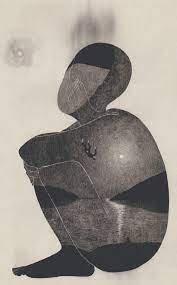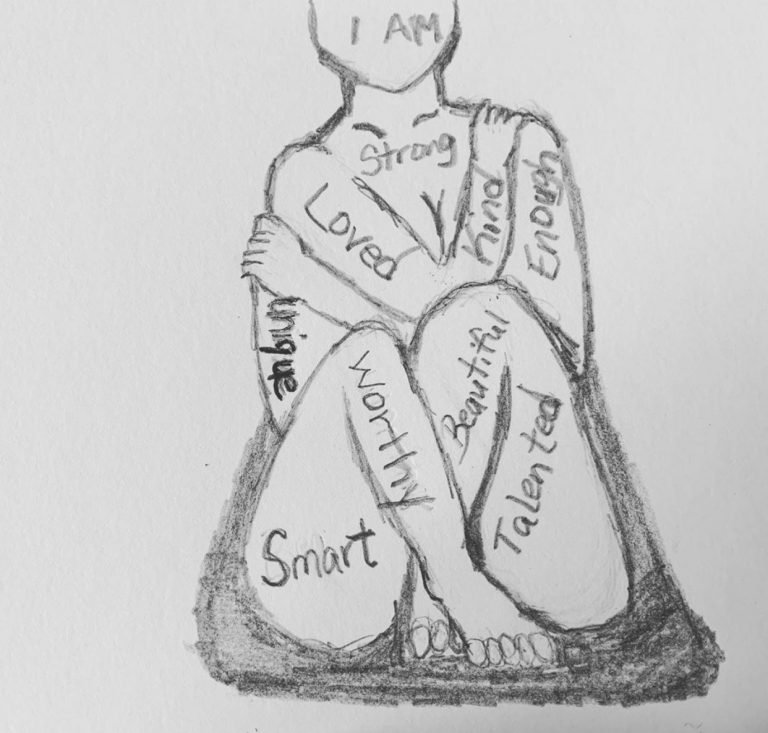You can listen to Ask The Pastor every weekday at 9:00am MST on 97.1FM Hope Radio KCMI! You can also listen and subscribe to Ask The Pastor in your favorite podcast feed. Listen on Apple Podcasts, Spotify, Google Podcasts, Stitcher, Amazon Music and most other podcast services.
This edition of Ask the Pastor features Pastors Gary Schick, Ben Cline, and Jonathan Hernandez.
Gary Schick
Today's topic is a relevant one because of the world we're living in. And apparently, I don't know, maybe you folks have been hearing about it for a week, because they're asking all the pastors this question. So the question is--it comes to us and it comes to the others---"what is your church doing to address pornography? What resources is your church providing for the betrayed spouse's trauma?" So, Jonathan, you wanna get us rolling?
Jonathan Hernandez
Yeah, so when I look at this, you know, I would think there could be a listener out there saying, "Well, is pornography really a sin? Is it something that bad?" In scripture, there's a couple things, Matthew 5:28 says, "but I say to you that everyone who looks at a woman with lustful intent has already committed adultery with her in his heart." And so that was the easy one to, you know, go to and look at. Also, Ephesians 5:3 says, "But sexual immorality and all impurity or covetness must not even be named among you as is proper among the saints." And 1 Corinthians 6:18-19 says, "Flee from sexual morality. Every other sin a person commits is outside the body, but the sexually immoral person sins against his own body. Or do you not know that your body is the temple of the Holy Spirit within you, whom you have from God." And so that would also look at the question as, "Well, pornography doesn't hurt anybody," or right there it just talks about how it hurts, you know, obviously it grieves the Holy Spirit. So, just kind of knocking those things out of the way to look at. You know, so some of the things like within our church, we just make sure, you know, so we'll ask, like in our men's group, and then hopefully our women are also covering these topics too. Cause it, you know, pornography is not just something that is, you know, within the men. There's also women that struggle with it. So just making sure that, you know, it's an open topic and that we're not, you know, somebody comes up to me and they say, "Hey Pastor John, I'm dealing with pornography." I don't shame them or, you know, put them down for it but, "hey, let me walk alongside you with this. I understand how you feel and where you're at." And one thing I always tell him is, "I'd love to hear now, that you say that you're struggling. Because if you're not struggling with this, it's not an issue to you and you're fine doing it all the time. But now that you're struggling, let's continue to walk through this struggle, and get you to the point where you're no longer struggling with pornography, but you're set free from it. And you don't have to continue to walk in that, you know, in that past." Is the enemy always gonna try to use pornography on that person? Probably. You know, the enemy's not gonna just keep bringing up this new stuff. He's like, "hey, you dealt with this in the past. Let me try to get you with this now." And so you always have to stay on guard as that person moves forward. But, you know, also making sure that we're not shaming that person for, you know, coming out and saying, "Hey, this is what I'm struggling with." But then also making sure that they're surrounded by people that are uplifting for them. You know, fellow Christians that that person can call and say, "Hey, I'm struggling right now and I really want to go back into this." And, you know, they can help talk to them, "Hey, let's go out for coffee. Let's get you out of, you know, being alone," or however that may look. And so, you know, those are kind of, I guess, tools in a sense that we have within our body. You know, making sure that they're not alone. That they know that they have people that they can talk to. And then having, with a guy that I helped walk through this a couple years ago, we met every week and just kind of talked about, "Okay, where you're at? How are you handling this?" And so, that was just kind of what we did as he walked through that process. And then, you know, resources; there's like, Covenant Eyes on the internet that you can, I'm not sure how much it costs. But you purchase it or whatever, and then you have it put on all your phones. He can, you know, if it's the guy or lady, whoever's struggling with it, then they'll have an accountability person that has access. So, the Covenant Eyes will send that person a report every week and says, "Hey, they've looked at this many sites," or whatever it may be. And so those are some resources that I guess that I know of.
Ben Cline
That's great. Thank you, Jonathan. It's interesting being a, you know, a smaller congregation. Being a smaller church, a lot of times there are not the resources, you know, to be a part of as a church together. And so, you know, the approach that we take, the approach that I personally take is similar to yours Jonathan. I think that when those issues come up, then we can deal with them. You know, there's a thing that has to happen in a person's heart, you know, to be convicted by the Holy Spirit, to be ready to deal with those things. But one of the things that I really stand, you know, very firmly on, is as we are teaching through the chapters and the verses and the books of scripture, that we don't leave those issues behind. You know, we've been in the book of Acts, and I think that my church probably is like, "when are we gonna get done with the book of Acts?" Cause it's one of the longest books in the Bible. But, you know, when we came across chapter 15, you know, they're at the Jerusalem Council and there's people who are bringing in issues that are non-salvation issues and saying that they're required to be saved. Well, they convene together and they make this decision that there are a few things that they biblically want to place on the gentile believers. You know, they say, "these are things that you need to follow, because these are things that are clearly covered in scripture." And in verse 20 it says, "but we write to them that they may abstain from things contaminated by idols and from fornication and what is strangled from blood." So these are the things that they said to the gentile believers, "These are the things you need to abstain from." And you notice that the word fornication is in there. You know, this would include lustfully looking at a woman. This would include inappropriate relationships. This would include pornography, and different things like that. And so, you know, we run across those situations that are recorded in the pages of scripture. And we make sure that we clearly teach them as we're facing them, through those verses and through that teaching. And then, you know, the other thing too, is that I am so thankful for other congregations in this valley. Other ministries that have the resources to be able to offer things like, you know, Celebrate Recovery. And, you know, those are things that we can encourage our people to be a part of and to take part in, if they are struggling with things like pornography. And so yeah, that's kind of where we are.
Gary Schick
And I'm glad this question comes up, because it's a problem. It's a problem in our culture. I mean, there was a time, you know, at least when I was a kid, I found out that you guys are a bit younger than me. But when I was a kid, you know, like you might, somebody found a magazine in a trash can or something. Today, it's right there on everybody's phone if you go looking for it. And a lot of people do. And as pointed out, it used to be considered kind of a men's problem, because men are more visually wired. You know, we're attracted to our eventual spouses initially, visually, and then we get to know them. Thankfully women, I think, are a little bit more emotionally wired. But regardless, women are becoming addicted as well today. And so, in one sense it is as old as time. I don't think we really know for sure which is the oldest book in the Bible, but I've heard it speculated that it's Job, because of the ancient language. Of course, it's poetry, which often uses ancient language. Maybe the oldest book in the Bible. And Job himself said, "I made a covenant with my eyes not to look at a young woman lustfully." So there it is. So, Job knew what the lust of the eyes was. John writes about, you know, the lust of the eyes. Paul warns Timothy, "treat the young women as sisters, the older women as mothers, the older men as fathers, younger men as brothers." In other words, you know, "here's healthy relationships for you Timothy as a young single person in ministry." And by the way, people in ministry struggle with this too. I think statistically, it's kind of flat; everybody. You know, it's one of those things. There's a natural element to it, the natural element of attraction, but then it's taken to a place where it shouldn't go. You know, your eyes should only be for your spouse in those intimate ways. And that's what scripture calls us to, that private place of husband and wife. So, all of that said, you know, what are the resources? In ministry, I remember the first time that---and you know, by the way, I think you put it well in terms of, how does this change happen? Somebody asked me once, "how many counselors or psychiatrists does it take to change a light bulb?" Do you guys know? "Only one, but the light bulb has to want to change." And that's a problem, not only with this addiction, but any addiction or any sin really. People, you know, can come; I've had on a few occasions, a guy will come to me. Often, it's because his wife is bringing him to me. And right there in a sense is, "yes, this is right, it's good, there's a problem," but how unfortunate that it's his wife bringing him. Because until he gets to that place that he says, "I want change," he's not gonna. It's gonna remain the private sin. I mean, you can have all the accountability out there, but you still have to make yourself accountable to it. That said, if you are struggling, and a lot are; and you know, I guess one of the good things is, it used to be all sort of hush, hush, covered up. It's so blatant and so out there in our society, it's not even such a big deal anymore. Please, go talk to your pastor about it, and make yourself accountable. And as you've pointed out, you know, in our smaller churches, what's the resource? Well, we as pastors are; we and our wives. And so, you know, I've had the situation more than once. Where a guy will come to me struggling in some way, or even a younger person, and then you know, my wife will be that resource for the wife. But in terms of resources, I think Jonathan put it well. I know there's a ton of resources on the internet. There's Covenant Eyes; there are apps you can put on your phone, and really you need to go there because that's probably, in this day and age where people are getting this stuff. They're getting it electronically, so you probably need some electronic solutions. I think you need to connect somewhere for accountability, whether it's with your pastor, another older, wiser Christian. A place like Celebrate Recovery is great, because there you're probably gonna get connected with somebody else who's somewhere along the same road you are. You know, whether it's Celebrate Recovery, that deals with all the addictions: sexual addictions, alcohol addictions, drug addictions. And they'll probably connect you up with somebody else who's on that same path, who's a little further down the road, that you can be accountable to, who will understand your struggles. I think that's helpful too. Somebody who gets where you're at. Also, there's some great reading resources. I remember, you know, the first time somebody came to me. I just kind of scratched my head and went looking at the Christian bookstore. And I think back when this issue began to become an issue, the only book out there was called Every Man's Battle by Steve Arterburn. And what's kind of neat about that book is, there is also a section at the end of each chapter for the wife. Or was it Arterburn who wrote that? I can't remember for sure, but I know that, you know, there was an author who wrote it, and I think he had struggled with it. And so he's telling his story of how he got out of it. So it may or may not have been Steve Arterburn, I don't know, but I know it's connected with his line of books. But then there's kind of the woman's response. And again, yes, today it's both a men's and women's issue. But probably the, you know, the larger percentage still is men because of how we're more visually wired. And so the woman talking about, you know, how she feels the betrayal she feels and coming to terms and helping her husband work through it. And then I remember, I had a youth pastor at one time, and he came scratching my head and said, "Hey, we got one in our youth." And so there's also Every Young Man's Battle out there, which I think is again, by the same author, but it's more focused for teenagers. The only struggle I had with that book, you know, because I had a guy coming to me, and so I began to read it. And it had kind of a lot of, you know, like "stories in terms of," and "here's how this happened in my life and where it went." And it's like, boy, that left some images in my mind just reading his stories. You know, like, I don't think I want that necessarily. So a third book that I came to along the way in ministry, um, what was it called? It was called Finely Free Fighting for Purity With the Power of Grace by Heath Lambert. And that was a great book, in the sense that it dealt with the issue without all the stories that just sort of create more images in the mind. And actually, that book kind of, even though it was addressed to that issue, I thought it really dealt well with probably almost any addiction in terms of dealing with it. With accountability and the power of the Holy Spirit and God's grace. And again, it's author was a person who had walked the road, you know? They weren't just coming at it from an aspect of this, a problem in our society or an interest in it, or whatever. It's, "I've been there. I've been right where you're at. If you're out there dealing with this, here's where I was and here's where the Lord has brought." And so, I think those are all helpful. But the one thing, you know, just to kind of finish up is, it's a strange thing. Even though it's sort of, it's even joked about like in sitcoms, you know? Pornography, as if that was no big deal, even though it destroys marriages. I've seen marriages destroyed. I've heard that it leads to impotency interestingly. I mean, just all kinds of problems. Nevertheless, it's a very private sin. People, you know, they don't want to admit to it. They don't want to talk about it. Well, if you're there, if you're struggling or if you've got a spouse or loved one who's struggling....Satan loves it when we try to deal with our own problems by ourselves in the dark, because that's where he can surround us and keep us captive. Get with somebody who you can open up to and really get on the path to freedom.






















